Let's face it, we all love a good hard-boiled egg. They're a perfect on-the-go breakfast, a delightful snack, or a versatile ingredient for countless dishes. But achieving that perfect hard-boiled egg, with its vibrant yellow yolk and firm yet tender texture, can be a bit of a culinary conundrum. I've certainly had my fair share of overcooked rubbery disasters and those frustratingly runny yolks. But after years of experimenting, I've finally cracked the code (pun intended!). I'm sharing my hard-earned wisdom so you can say goodbye to egg-boiling nightmares and embrace the joy of perfectly cooked, delicious hard-boiled eggs, every time.
(Part 1) Unlocking the Science: A Journey into the Egg
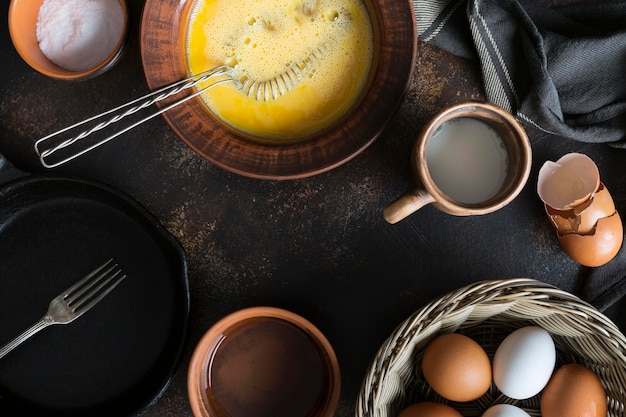
Before we dive into the nitty-gritty of cooking times and techniques, let's take a peek inside the egg and understand what's really happening when we subject it to the heat of boiling water. It's not simply about heating up the egg, you see. The real magic lies in the way the proteins in the egg white and yolk react to different temperatures.
The White: A Tale of Solidification
The proteins in the egg white start their solidification journey around 144°F (62°C). As the temperature rises, these proteins bond together, making the egg white increasingly firm. This is why you'll notice the white becoming more solid as you cook the egg longer.
The Yolk: A Transformation into Firmness
The yolk's transformation is a little more subtle. The proteins within the yolk start to thicken at a slightly higher temperature than the egg white. The longer you cook, the more these proteins solidify, resulting in a harder, firmer yolk.
The green ring Mystery: A Chemical Reaction
Now, let's tackle the infamous green ring that sometimes forms around the yolk. This curious phenomenon happens when the iron in the yolk interacts with the sulfur in the white, forming iron sulfide. While harmless, it's definitely not the most visually appealing sight. Fortunately, you can avoid this green ring by keeping the cooking time relatively short and using older eggs. The larger air pocket at the top of older eggs helps prevent the yolk from coming into contact with the white, thus minimizing the chance of that green ring forming.
(Part 2) The Essential Toolkit: Gearing Up for Egg-cellence
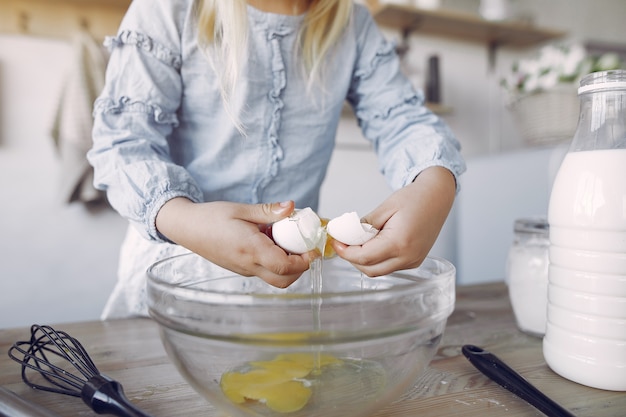
You've got your eggs, but what else do you need to achieve egg-boiling mastery? Don't worry, it's not a complicated affair. Here's a simple list of essentials:
- fresh eggs (either room temperature or straight from the fridge): Fresh eggs are key for the best flavour and texture. If you're using eggs straight from the fridge, give them a few minutes to come to room temperature before boiling, as this can help them cook more evenly.
- A large saucepan: Make sure it's big enough to comfortably accommodate your eggs with plenty of water to cover them.
- Cold water: Enough to cover the eggs by at least an inch. This ensures even cooking.
- Ice water: For an ice bath, which is crucial for stopping the cooking process and preventing overcooked yolks.
- A slotted spoon or spider strainer: This will help you easily remove the eggs from the boiling water and the ice bath.
- A timer: Optional but highly recommended. Accuracy is key when it comes to cooking time!
(Part 3) The Boiling Process: A Step-by-Step Guide to Perfection
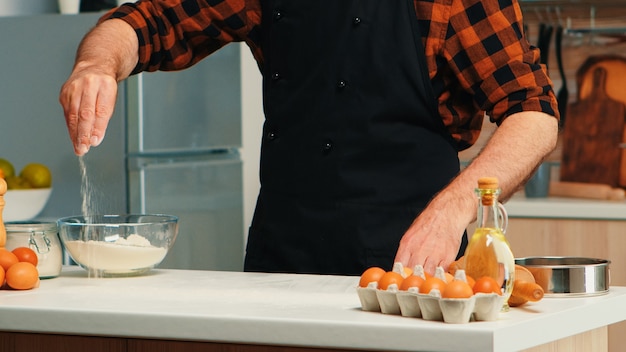
Ready to embark on your egg-boiling adventure? Follow these steps carefully, and you'll be rewarded with perfectly cooked hard-boiled eggs.
1. The Cold Start: Setting the Stage for Success
Begin by gently placing your eggs into the saucepan. Fill the pan with cold water, ensuring the water level is at least an inch above the eggs. This generous amount of water ensures even heat distribution and helps prevent the eggs from cracking during the boiling process.
2. The Boil: Bringing the Heat
Place the saucepan on the stovetop and bring the water to a rolling boil over high heat. Once the water is bubbling vigorously, immediately reduce the heat to medium-low and set your trusty timer. This is where precision comes into play. By lowering the heat after the initial boil, you create a gentle simmering environment, promoting even cooking and preventing the eggs from overcooking.
3. The Timing: Finding Your Perfect Yolk
Here's the real magic – understanding the cooking times is key to achieving your desired yolk texture. Remember, every stove and every egg is a little different, so you might need to adjust the timings slightly based on your own experiences. Here's a general guide to get you started:
| Cooking Time | Yolk Texture | Ideal for |
|---|---|---|
| 3-4 minutes | Very Soft Yolk | deviled eggs, egg salad, or a runny yolk preference |
| 5-6 minutes | Soft Yolk | Egg salad, sandwiches, or a slightly firmer yolk |
| 7-8 minutes | Medium Yolk | Versatile, good for salads, snacks, or a balance of firmness and creaminess |
| 9-10 minutes | Hard Yolk | Sliced for salads, snacks, or a firm texture |
| 12 minutes | Very Hard Yolk | Chopped for salads or dishes where a very firm texture is desired |
Remember, the longer you cook the egg, the harder the yolk will become. So, choose your cooking time carefully based on your desired texture and the intended use of your hard-boiled eggs.
4. The Ice Bath: Quenching the Heat
Once your timer chimes, immediately drain the hot water from the saucepan and plunge the eggs into a bowl of ice water. This quick and crucial step stops the cooking process instantly, preventing the yolks from overcooking and becoming rubbery. Let the eggs rest in the ice bath for at least 10 minutes, or until they're completely cool.
(Part 4) Finishing Touches: From Peeling to Storage
Congratulations, you've just boiled perfect hard-boiled eggs! Now, let's make sure they're ready for their starring roles in your culinary creations.
1. Peeling with Ease: Mastering the Art of Removal
Nobody wants a hard-boiled egg peeling experience that ends in a shredded mess. Here's how to make peeling those eggs a breeze:
- Tap the egg gently on a counter to crack the shell. This creates tiny cracks without damaging the delicate white.
- Start peeling from the wide end, where the air pocket is. This end of the egg usually has a weaker shell, making it easier to peel.
- Use a spoon to help loosen the shell. Gently slide the spoon under the shell and lift it up, slowly working your way around the egg.
- If the shell is stubbornly stuck, try rolling the egg between your palms. This helps loosen the shell further.
2. Storage: Keeping Your Eggs Fresh and Delicious
To keep your hard-boiled eggs fresh and tasty, store them in the refrigerator in a container filled with cold water. This helps maintain moisture and prevents them from drying out. Hard-boiled eggs can last for up to a week in the fridge, but they're best enjoyed within a few days for optimal flavour.
(Part 5) Beyond Basic Boiled Eggs: Unveiling Culinary Creativity
You've mastered the art of the perfect hard-boiled egg, but there's so much more to explore! These versatile little spheres can be transformed into a myriad of delightful dishes.
1. Deviled Eggs: A Classic with Endless Variations
Deviled eggs are a timeless party favourite and a delicious, easy lunch option. Here's a basic recipe to get you started, but feel free to get creative and experiment with different flavour combinations:
- Cut the hard-boiled eggs in half lengthwise and gently scoop out the yolks into a bowl.
- Mash the yolks with mayonnaise, mustard, salt, pepper, and a sprinkle of paprika. You can add a dollop of sour cream or Greek yogurt for a tangy twist.
- Spoon the creamy yolk mixture back into the egg whites and garnish with chopped chives, bacon bits, a drizzle of hot sauce, or a sprinkle of chopped fresh herbs for a vibrant touch.
2. Egg Salad: A Simple and Satisfying Treat
Egg salad is a quick and easy lunch or sandwich filling, packed with protein and flavour.
- Chop the hard-boiled eggs into small pieces.
- Combine them with mayonnaise, mustard, finely chopped celery, and onion. You can also add a pinch of dried dill or parsley for extra flavour.
- Season with salt and pepper to taste.
- Serve on bread, crackers, or lettuce leaves for a refreshing and satisfying meal.
3. Pickled Eggs: A Tangy and Unexpected Delight
Pickled eggs are a unique and surprisingly delicious treat, adding a tangy and salty flavour to any meal. They're perfect for picnics, parties, or as a fun addition to your charcuterie board.
- Peel the hard-boiled eggs and place them in a sterilized jar.
- Prepare a brine solution by combining vinegar, water, salt, and your favourite spices. Popular choices include black peppercorns, mustard seeds, bay leaves, and whole cloves. Adjust the amount of salt and spices to your taste.
- Pour the brine solution over the eggs, making sure they are completely submerged.
- Let the eggs pickle in the refrigerator for at least a week, or until they develop a tangy and flavorful profile. The longer they pickle, the more intense the flavour will become.
(Part 6) Mastering the Art: Insights from an Egg Enthusiast
Over the years, I've learned a few extra tips that have helped me elevate my hard-boiled egg game. Here are some pearls of wisdom I'd like to share:
- Always use fresh eggs: They offer the best flavour and texture. If you're unsure about the freshness, give the egg a gentle shake. If you can hear a sloshing sound, it's best to avoid using it.
- Don't overcrowd the saucepan: Give the eggs enough space to cook evenly. If you're cooking a large batch, consider dividing it into smaller batches for optimal results.
- Add a teaspoon of salt to the boiling water: This can help prevent cracking and create a smoother yolk.
- Don't overcook the eggs: It's better to err on the side of undercooked than overcooked. You can always cook them a little longer if they're not quite hard enough. Overcooked eggs, on the other hand, are much harder to salvage.
(Part 7) The Egg-cellent Experiment: A Personal Journey
I've always had a fondness for hard-boiled eggs, but for years, I was intimidated by the boiling process. The thought of cracking eggs or ending up with a green ring around the yolk was enough to make me hesitate. But I decided to challenge myself and conquer this seemingly simple culinary feat. I spent countless hours experimenting with different techniques and timings, diligently recording my observations. And I'm thrilled to say that I finally cracked the code! It's a simple skill to master, but the satisfaction of achieving perfectly cooked hard-boiled eggs is truly rewarding.
One of my most memorable egg-boiling experiences happened on a camping trip. I was responsible for making breakfast for our group, and I decided to whip up a batch of hard-boiled eggs. However, in the midst of my outdoor cooking frenzy, I completely forgot to set a timer. By the time I remembered, the eggs had been boiling for what felt like an eternity. Needless to say, they were rock-hard, like tiny, edible pebbles. I learned a valuable lesson that day: never underestimate the power of a timer! But even though those eggs were overcooked, everyone ate them with a laugh, and it became a funny story we still reminisce about. It just goes to show that even a less-than-perfect batch of hard-boiled eggs can be enjoyed, and they always make for great stories.
(Part 8) FAQs: Your Hard Boiled Egg Questions Answered
I know you might have some lingering questions, so here are answers to the most common ones:
1. Can I use older eggs to make hard boiled eggs?
Yes, you can! Older eggs actually have a larger air pocket at the top, which makes them easier to peel. However, they might be a bit more challenging to cook perfectly, as the yolk may be slightly more fragile. But don't let that stop you. Older eggs are perfectly fine for hard-boiling, and they'll still be delicious.
2. How do I know if my eggs are cooked enough?
One of the easiest ways to test the doneness of your hard-boiled eggs is to poke them with a toothpick. If the yolk is still soft, the toothpick will easily sink into it. If the yolk is firm, the toothpick will bounce back. You can also try gently pressing on the egg with your finger. If it feels firm and springy, it's likely cooked to your liking. Remember, it's better to err on the side of slightly undercooked than overcooked.
3. What if my eggs crack during boiling?
Don't fret if an egg or two cracks during the boiling process. It won't significantly affect the taste or texture. To help prevent cracking, try adding a teaspoon of salt to the boiling water. The salt helps strengthen the egg white, making it less prone to cracking. You can also gently lower the eggs into the boiling water to reduce the risk of cracking.
4. What's the best way to peel a hard-boiled egg?
The key to peeling hard-boiled eggs with ease is to start by gently tapping the egg on a counter to crack the shell. Then, begin peeling from the wide end, where the air pocket is. Use a spoon to help loosen the shell, gently sliding it under the shell and lifting it up. If the shell is stubborn, try rolling the egg between your palms to crack it more. With a little patience and these tips, peeling your hard-boiled eggs should be a smooth and stress-free process.
5. How long can I store hard boiled eggs in the fridge?
Hard-boiled eggs can last in the fridge for up to a week, but for the best flavour, it's best to enjoy them within a few days. Store them in a container filled with cold water to keep them moist and prevent them from drying out. Remember to change the water daily for optimal freshness.
(Part 9) The Final Word: A Celebration of Simplicity
There you have it, my complete guide to achieving those perfect hard-boiled eggs. I hope you've found this information helpful and insightful. While it might seem like a simple task, mastering the art of boiling the perfect egg involves a blend of science, attention to detail, and a touch of patience. Remember, even if you don't nail it perfectly every time, there's always a good story to tell. So go forth, crack a few eggs, and relish the delicious simplicity of a perfectly cooked hard-boiled egg. And don't forget, a little experimentation and practice will make you an egg-boiling maestro in no time.
Everyone is watching
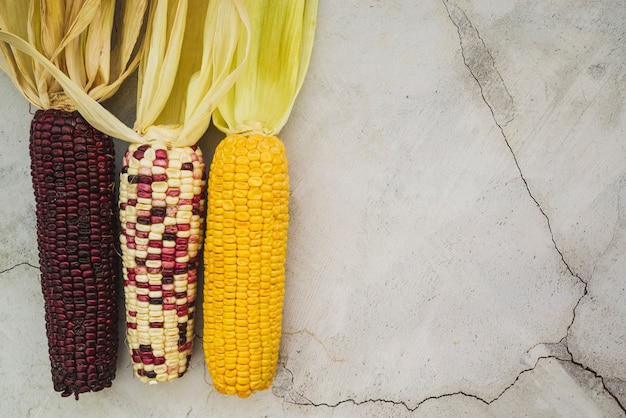
Corn on the Cob: The Ultimate Guide to Perfectly Cooked Ears
Healthy MealsAh, corn on the cob. Just the name evokes images of sunny days, barbecues, and that sweet, juicy flavour that ...
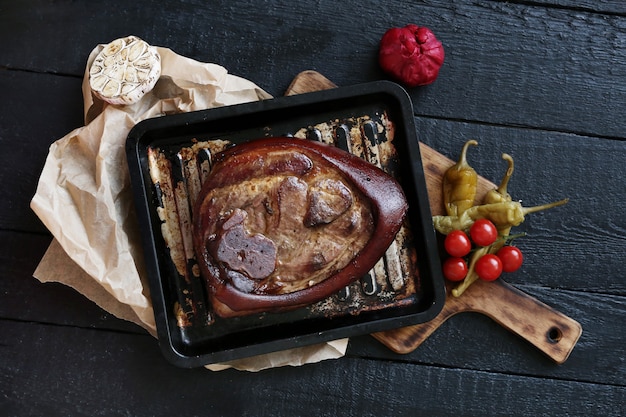
Perfect Pork Roast Oven Cooking Time: A Guide to Delicious Results
Healthy MealsThere's something truly satisfying about a perfectly roasted pork. The aroma alone is enough to make your mout...
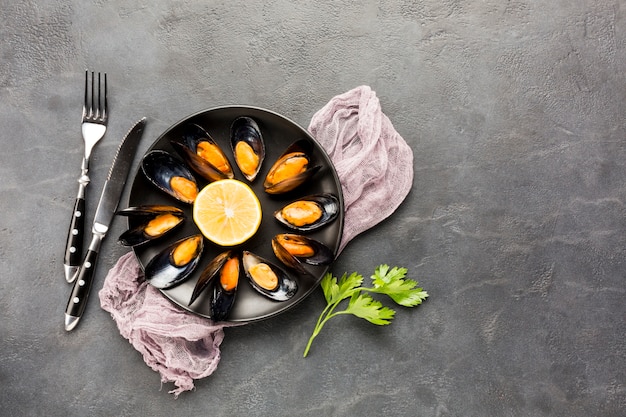
Scallops: The Ultimate Guide to Perfect Cooking
Healthy MealsAh, scallops. Those delicate, sweet, and utterly delicious morsels of the sea. They hold a special place in my...
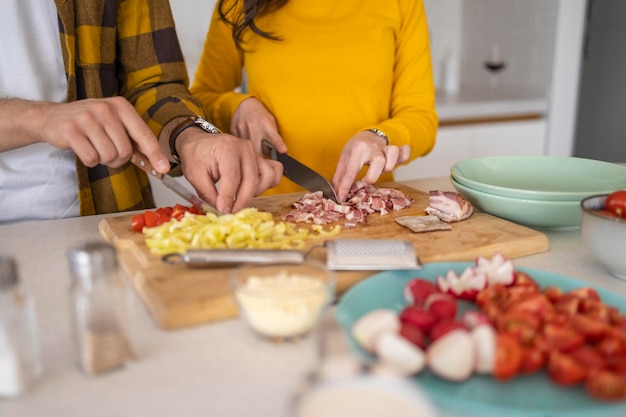
Ham Cooking Time: How Long to Bake, Smoke, or Boil a Delicious Ham
Healthy MealsAh, ham. It's a classic, isn't it? A real crowd-pleaser, especially around holidays. And when done right, it'...
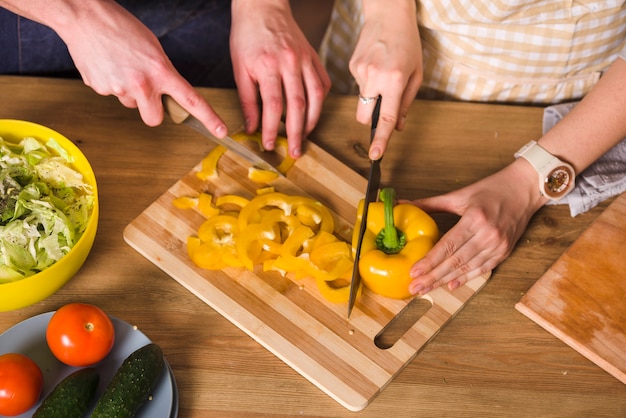
Spaghetti Squash: The Ultimate Guide to Cooking and Serving
Healthy MealsRemember that time you saw spaghetti squash at the supermarket, looking all bumpy and strange, and thought, "W...
